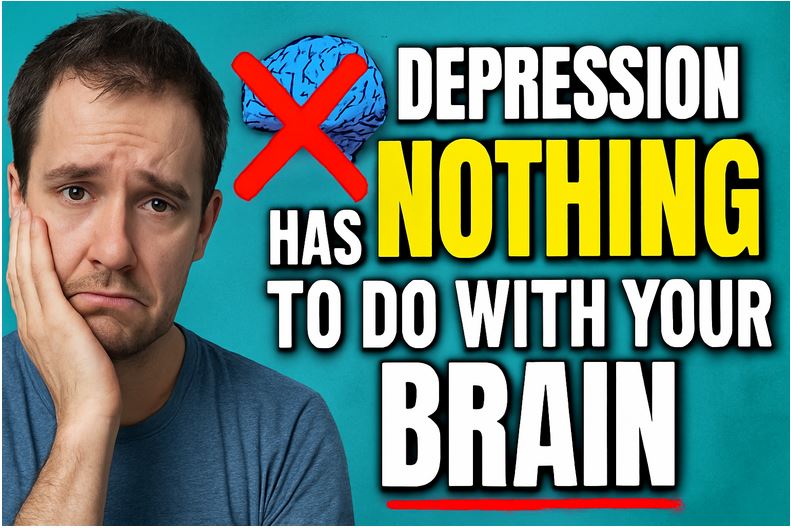Your Cart is Empty
Depression Has NOTHING to Do With Your Brain
13 Jun, 2025 5

Depression Has NOTHING to Do With Your Brain
Depression is a brain disorder. That’s what most of us have heard our whole lives. It’s a neat story—one of faulty chemicals, broken brain circuits, and pills that repair the invisible machinery in our heads. But what if that entire explanation leaves out most of the picture?
Let’s start with the famous “chemical imbalance” theory. You’ve seen it everywhere—diagrams of serotonin receptors, promises that antidepressants will patch you up by flooding your brain with the right chemicals. For years, this idea dominated medicine and public awareness. Television ads for antidepressants claimed to “restore balance.” But here’s the uncomfortable truth: there’s never been concrete scientific evidence that a simple serotonin imbalance causes depression. Study after study suggests that low serotonin might not be the culprit.
So if it’s not all in the brain, what is depression? Here’s where the story turns. Look at the world outside the brain. Is it just coincidence that depression rates spike during economic downturns, wars, or pandemics? Or that people isolated from social connections experience some of the worst depressive episodes? You see, when researchers really dig into what causes depression, a new pattern emerges—most often, the environment.
In fact, studies with twins show that the genetic wiring for depression explains less than half of the risk. The rest comes from somewhere else—people’s lives, their histories, and especially the situations they find themselves in.
Say someone loses their job. Another person is in an abusive relationship. Someone else suffers chronic pain. The more stress accumulates, the more likely it is for depression to show up. Scientists who study indigenous people living traditional lifestyles—free from many features of modern society—often find far lower rates of depression. Their brains aren’t different. Their worlds are.
And yet, we act like depression is simply a glitch in an individual’s head, something to be solved with a prescription and a pep talk. But if we know that social isolation, uncertainty, poverty, and loss drive depression, wouldn’t the real solutions involve…changing those conditions? If genetics count for less than fifty percent, how much power do we have to change everything else?
None of this means biology does not matter. Of course our brains reflect what we experience. But saying “depression is just your brain” ignores a truth that is often inconvenient for society. That alleviating depression may have nothing to do with correcting chemistry, and much more to do with how we live and connect.
This isn’t just a medical story. It’s a human one. And we should remember that the most meaningful repairs might not come from a pill, but from changing the world outside our heads.




